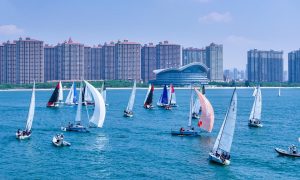Malaysia makes remarkable strides forward as a business-friendly country in the latest report of the world’s Business Environment Rankings.
When we talk to expat entrepreneurs, one of the common elements we find is the relative ease with which they have all set up their respective businesses. They tell us that the process for them was straightforward and largely free from difficult hurdles or unfathomable red tape. Recently, a report from the Economist Intelligence Unit (EIU) confirmed what these business owners had already collectively reported themselves: doing business in Malaysia is fairly easy.
In the EIU’s latest Business Environment Rankings, which covers 82 countries worldwide for the period 2014-2018, Malaysia was ranked in 19th place, now in the world’s top 20 investor- and businessfriendly countries. Being in the top 20 countries to do business in worldwide is the latest feather in Malaysia’s cap, and also a testament to the efforts and successes of InvestKL, a company tasked with attracting the world’s top companies to set up their regional offices or headquarters in the Greater Kuala Lumpur area.
In the new EIU report, Malaysia jumped forward five places from its 24thplace ranking in the previous report, an improvement that now places Malaysia ahead of countries like the United Kingdom, France, South Korea, and Japan.
Regionally, however, Malaysia held steady. Among the 17 countries considered in the region, Malaysia’s rank remained unchanged at sixth place; however, it is important to note that this region is expansive and includes non-ASEAN countries such as Hong Kong, Taiwan, Australia, and New Zealand, among others.
The business rankings model measures the overall quality or attractiveness of the business environment in the 82 countries covered by the Economist Intelligence Unit’s Country Forecast reports. It is designed to reflect the main criteria used by companies to formulate their global business strategies, and is based not only on historical conditions but also on expectations about prevailing conditions over the next five years. This allows the EIU to utilise the regularity, depth, and detail of its forecasting work to generate a unique set of forward-looking business environment rankings on a regional and global basis. The business rankings model examines 10 categories, covering the political environment, the macroeconomic environment, market opportunities, policies towards free enterprise and competition, policy towards foreign investment, foreign trade and exchange controls, taxes, financing, the labour market, and infrastructure. Each category contains a number of indicators that are assessed by the EIU for the last five years and the next five years. The number of indicators in each category ranges from five (foreign trade and exchange regimes) to 16 (infrastructure), with a total of 91 indicators. Each of these 91 indicators is scored on a scale from 1 (very bad for business) to 5 (very good for business).
“It is designed to reflect the main criteria used by companies to formulate their global business strategies, and is based not only on historical conditions but also on expectations about conditions prevailing over the next five years,” the EIU said in the report.
The Business Environment Rankings report went on to say that market opportunities in Malaysia would improve, in large part due to the Malaysian government’s efforts to improve private sector investment levels. “The higher global ranking is an indication that the government’s reforms will overcome many of the structural and political impediments to its ambitious plans to transform the country into a middle-income nation.”
The Top 10 countries of the EIU’s Business Environment Rankings are dominated by North American, Scandinavian, and a handful of well-developed Asian economies. In order, the Top 10 countries are Singapore, Switzerland, Hong Kong, Canada, Australia, Sweden, USA, New Zealand, Finland, and Denmark. Malaysia and Singapore were the only two ASEAN countries in the Top 20.
According to the report, “Asia’s best performers have several factors in common: a favourable policy environment – particularly for finance and foreign investment – with competition policies that encompass international best practice.”
Read This: Greater KL Leads Malaysia to an Impressive Surge
Source: The Expat magazine September 2014
"ExpatGo welcomes and encourages comments, input, and divergent opinions. However, we kindly request that you use suitable language in your comments, and refrain from any sort of personal attack, hate speech, or disparaging rhetoric. Comments not in line with this are subject to removal from the site. "




















